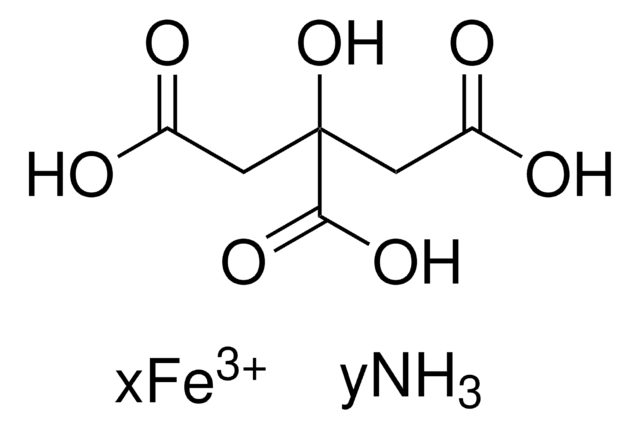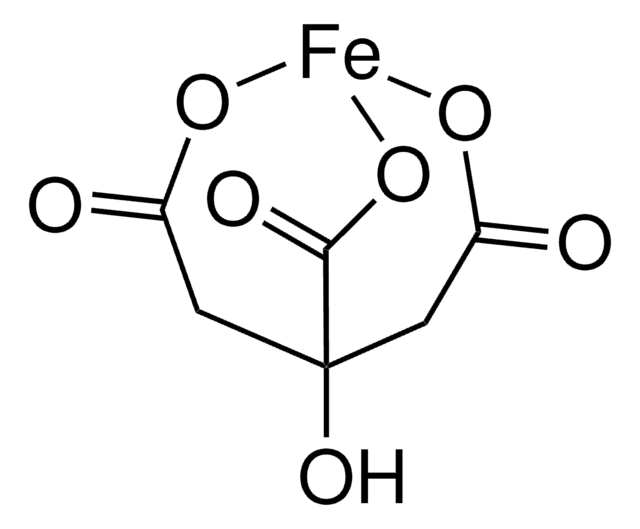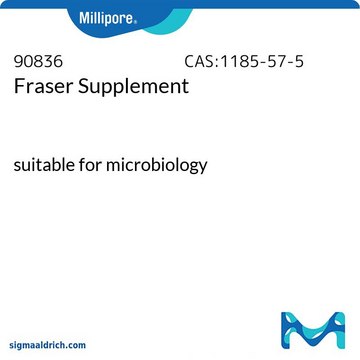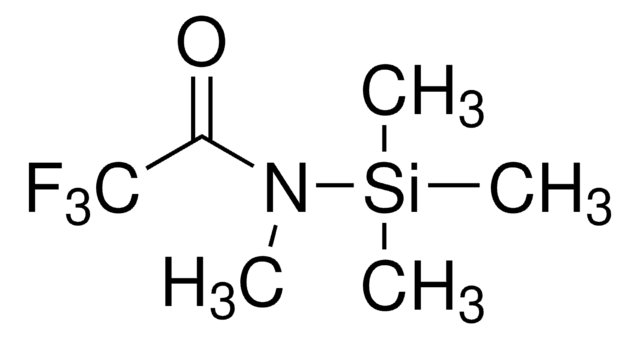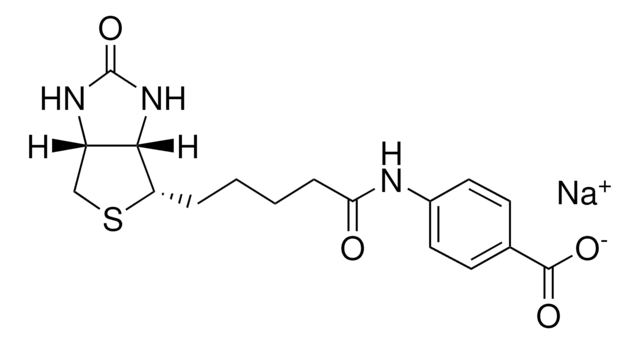F5879
Ammonium iron(III) citrate
reagent grade, powder
Sinónimos:
Ammonium ferric citrate, Ferric ammonium citrate
About This Item
Productos recomendados
grade
reagent grade
Quality Level
form
powder
composition
Iron, 16.5-18.5%
cation traces
Fe: 16.5-18.5%
SMILES string
N.OC12CC(=O)O[Fe](OC(=O)C1)OC(=O)C2
InChI
1S/C6H8O7.Fe.H3N/c7-3(8)1-6(13,5(11)12)2-4(9)10;;/h13H,1-2H2,(H,7,8)(H,9,10)(H,11,12);;1H3/q;+3;/p-3
InChI key
FRHBOQMZUOWXQL-UHFFFAOYSA-K
¿Está buscando productos similares? Visita Guía de comparación de productos
General description
Application
Storage Class
11 - Combustible Solids
wgk_germany
WGK 1
flash_point_f
Not applicable
flash_point_c
Not applicable
Elija entre una de las versiones más recientes:
¿Ya tiene este producto?
Encuentre la documentación para los productos que ha comprado recientemente en la Biblioteca de documentos.
Los clientes también vieron
Nuestro equipo de científicos tiene experiencia en todas las áreas de investigación: Ciencias de la vida, Ciencia de los materiales, Síntesis química, Cromatografía, Analítica y muchas otras.
Póngase en contacto con el Servicio técnico